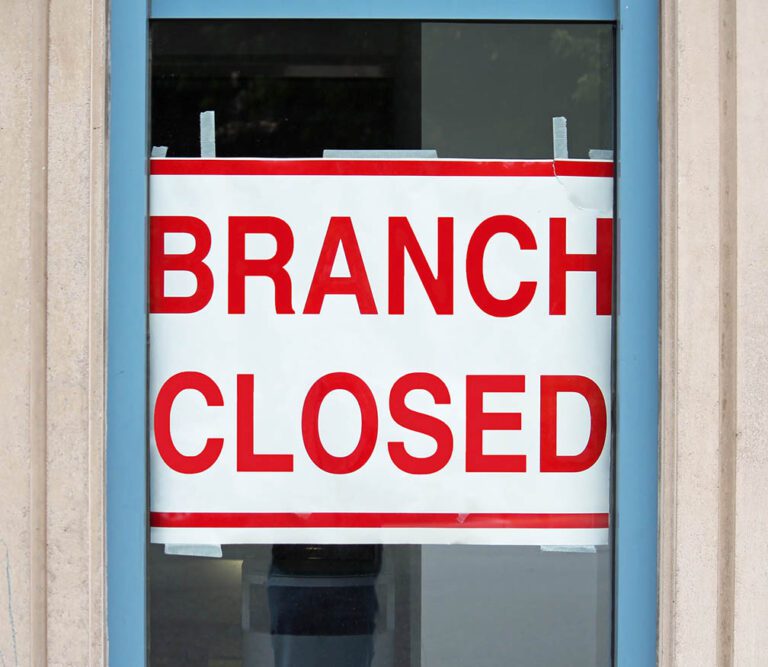NEW YORK — The recent failures of Silicon Valley Bank and Signature Bank, which catered mostly to the tech industry, may have you worried about your money. They were the second- and third-biggest bank failures in U.S. history.
It all started last week when too many depositors tried to withdraw their money from Silicon Valley Bank in Santa Clara, California. That’s known as a bank run.
The bank had to sell treasury bonds and other securities at a steep loss and more people kept trying to withdraw money as word of the situation spread, causing the bank to fail. Regulators took control of New York-based Signature Bank soon after, saying it was necessary to protect depositors after too many people withdrew money.
In response, regulators guaranteed all deposits at the two banks and created a program to help shield other banks to shield them from a run on deposits.
Here’s what you need to know:
IS MY MONEY SAFE?
Yes, if your money is in a bank insured by the Federal Deposit Insurance Corp. and you have less than $250,000 there. If the bank fails, you’ll get your money back.
Nearly all banks are FDIC insured. You can look for the FDIC logo at bank teller windows or on the entrance to your bank branch.
Credit unions are insured by the National Credit Union Administration.
If you have over $250,000 in one bank, which most people don’t, that amount is considered uninsured and experts recommend that you move the remainder of your money to a different financial institution, said Caleb Silver, editor in chief of Investopedia, a financial media website.
Federal officials have been taking steps to make sure other banks aren’t impacted.
“You shouldn’t be too concerned about your money if it’s in one of the bigger banks, and even in some of the regional banks and the credit unions,” Silver said.
CAN I TELL IF MY BANK WILL FAIL?
If you are worried about your bank closing in the near future, there are some things you can watch out for, according to Silver:
— Watch the stock price of your bank.
— Keep an eye on the quarterly and annual reports from your bank.
— Start a Google alert for your bank in case there are news stories about it.
You want to make sure you pay close attention to the way your bank is behaving, Silver said.
“If they’re trying to raise money through a share offering or if they’re trying to sell more stock, they might have trouble on their balance sheet,” said Silver.
SHOULD I LOOK FOR ALTERNATIVES?
If you have more than $250,000 in your bank, there are a few things you can do:
— Open a joint account
You can protect up to $500,000 by opening a joint account with someone else, such as your spouse, said Greg McBride, chief financial analyst at Bankrate, a financial services company.
“A married couple can easily protect a million dollars at the same bank by each having an individual account and together having a joint account,” McBride said.
— Move to another financial institution
Moving your money to other financial institutions and having up to $250,000 in each account will ensure that your money is insured by the FDIC, McBride said.
— Do not withdraw cash
Despite the recent uncertainty, experts don’t recommend withdrawing cash from your account. Keeping your money in financial institutions rather than in your home is safer, especially when the amount is insured.
“It’s not a time to pull your money out of the bank,” Silver said.
Even people with uninsured deposits usually get nearly all of their money back.
“It takes time, but generally all depositors — both insured and uninsured — get their money back,” said Todd Phillips, a consultant and former attorney at the FDIC. “Uninsured depositors may have to wait some time, and may have to take haircut where they lose 10 to 15% of their savings, but it’s never zero.”
The Associated Press is an independent global news organization dedicated to factual reporting. Founded in 1846, AP today remains the most trusted source of fast, accurate, unbiased news in all formats and the essential provider of the technology and services vital to the news business. The Trucker Media Group is subscriber of The Associated Press has been granted the license to use this content on TheTrucker.com and The Trucker newspaper in accordance with its Content License Agreement with The Associated Press.











